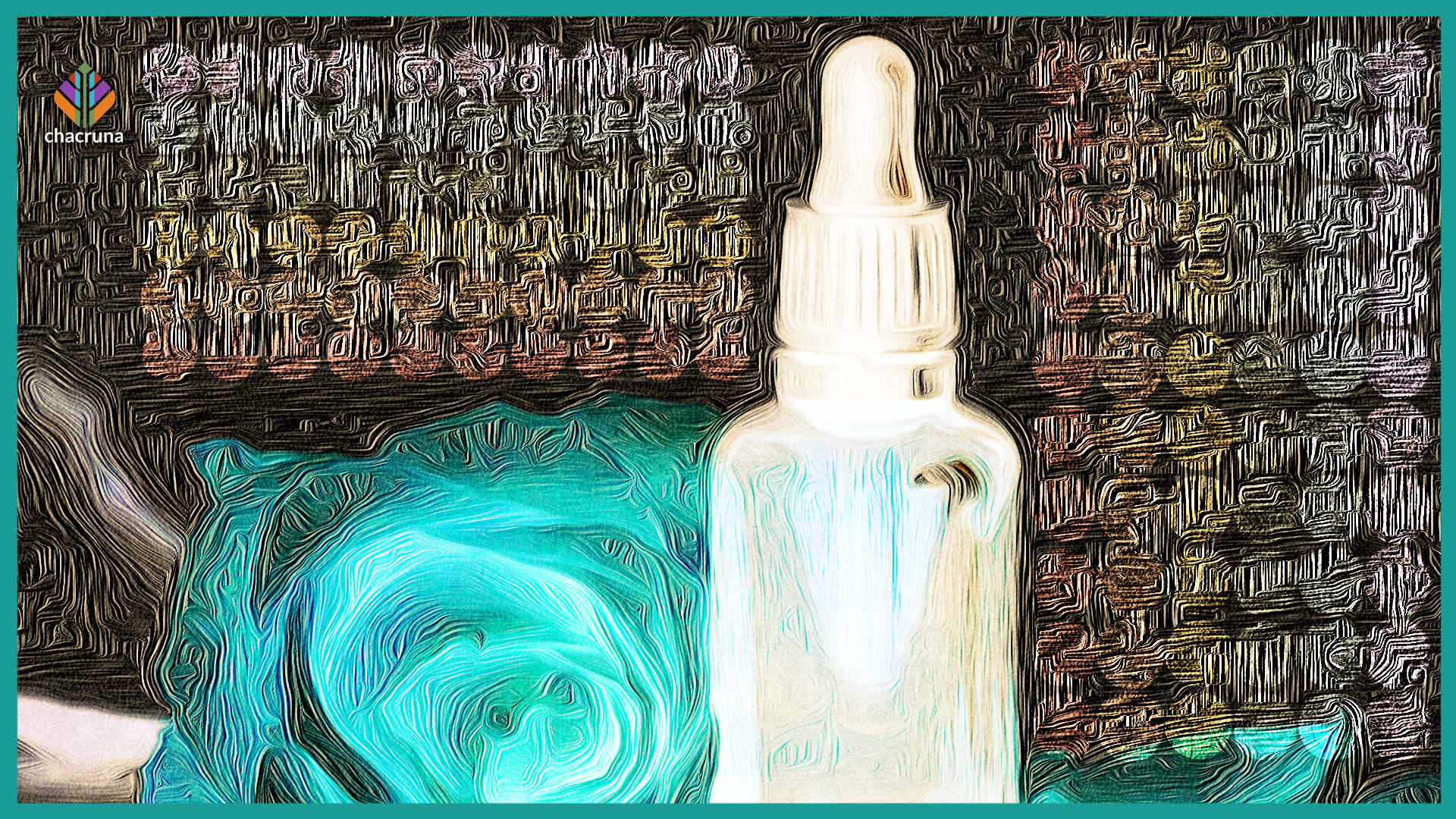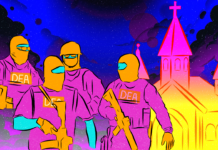- After 2024, the Scenario for Psychedelic Therapies Can Only Improve - January 16, 2025
- Symposium in Brazil Debates Psychedelics at a Political Crossroads - December 13, 2024
- Conference in Rio Defends Psychedelics in Public Health - December 11, 2024
FDA approval in August is not ruled out, but the bar has been raised
On June 4, a bucket of cold water fell on the heads of those who had hoped that psychedelic assisted therapy with MDMA would be approved in the USA this year. An advisory committee to the US drug agency (FDA) voted almost unanimously against this innovative treatment for post-traumatic stress disorder (PTSD).
It was not even close: 10 to 1 against the possibility that the benefits of the procedure outweigh its risks, and 9 to 2 against there being sufficient evidence of its effectiveness. At issue was the license application of the company Lykos Therapeutics, whose psychedelic therapy protocol ran aground on the petrified pharmacological model that governs the FDA.
It is not yet a complete shipwreck, as the agency does not always follow the vote of its consultants. The large defeat makes it difficult to reach a favorable decision on August 11, when its board of directors will decide, but it does not make it impossible—approval could be conditional on strict rules of use, for example.
Four weeks after the voting, it is clear that the committee’s evaluation has strayed far from therapy to become a judgment of Lykos’ attitudes and history. The sea was already rough from the negative opinion of an independent organization, ICER.
There was perhaps too much optimism with the FDA, although it was clear that the sui generis application could get bogged down in the narrow channel for approving new drugs. To begin with, MDMA (ecstasy) has been a controlled substance since 1985 in the US, which has never prevented recreational use in nightclubs and raves.
Moreover, the drug agency is ill-equipped to assess its close association with psychotherapy, a procedure which, incidentally, is not even within its responsibility. The same can be said of the committee of external consultants, among whom there were no experts in the field.
The evaluators objected that there were no details on the control of the standardization of the psychotherapy applied in the clinical trials. Different techniques would produce varying results, making it impossible to statistically assess their contribution to the beneficial effect and separate it from the contribution of the drug itself.
MDMA works as a catalyst for “talking cure,” insofar as it facilitates access to traumas dissociated from the usual, painful and incapacitating suffering.
This is a contradiction in terms: the committee is trying to separate the most innovative aspect of the proposal, precisely the synergy between the drug and psychic development. MDMA works as a catalyst for “talking cure,” insofar as it facilitates access to traumas dissociated from the usual, painful and incapacitating suffering.
On the other hand, even if we were to adopt a single type of psychotherapy and strictly control its application, it would sound laughable to talk about standardization. Only those who have never taken part in a psychotherapy session, delving deep into the turbulent waters of the psyche, can imagine that it could fit into the concept of a controlled variable.
“From a market perspective, it would be much easier to simply offer MDMA as a product, without therapy,” ponders Brazilian anthropologist Bia Labate, executive director of the Chacruna Institute of Psychedelic Plant Medicines in San Francisco (of which I am an unpaid consultant, it should be clarified). “New and unconventional treatments using psychedelics rooted in deep moral and religious stigmas can be expected to meet with resistance.”
Psychiatrist Luís Fernando Tófoli, from the University of Campinas (UNICAMP), believes that there was more than one factor contributing to the rejection of MDMA-assisted therapy by FDA experts: “One of them, which cannot be minimized, was the flaws of MAPS/Lykos. The reports of ethical deviations are not insignificant, and the institutional responses were not, in my opinion, firm enough.”

Discover the Indigenous Reciprocity Initiative of the Americas
Tófoli is one of the organizers of the forum “Psychedelic Convergences: Science, Culture and Therapy,” which took place on June 27 at the UNICAMP Convention Center, in the city of Campinas, SP, Brazil. Together with biologist Kellen Vilharva Guarani Kaiowá and sociologist Pietro Benedito, he is presenting in the first panel, “Psyche and Substance: Psychopharmacological Studies.”
For the psychiatrist, whose group has conducted research into the cognitive effects of LSD, “the regulatory model centered exclusively on the blinding of substances – something fundamental for vaccines or chemotherapy – also needs to be questioned and rethought in the case of psychedelics.”
The commission has indeed emphasized the problem of double-blinding. According to the FDA’s gold standard prescription, it is required that neither patients nor experimenters know who took the active drug and who took the placebo, in order to reduce the influence of expectations.
The rationale is to eliminate bias on both sides. But since the psychedelic effect is always obvious, this requirement is almost impossible to meet with psychoactive drugs, including conventional antidepressants licensed decades ago.
Another complicating factor for the committee was that 40% of the participants in Lykos’ phase 3 study had taken MDMA before. Given their familiarity with the effect, they would therefore be better able to identify it and, perhaps because of this, more likely to improve in the following weeks.
The researchers’ enthusiasm for psychedelic psychotherapy, which many consider to be capable of revolutionizing psychiatry, could also be a source of bias. Their beliefs and sense of mission could have favorably influenced the volunteers. Some critics who testified at the FDA’s public session accused Lykos of promoting a “therapeutic cult.”
Apart from this last accusation, the other points of questioning had already been debated between the FDA and Lykos. The agency had, after all, approved the design of the phase 3 clinical trial that generated the data submitted.
The difficulty of blinding is as structural as it is well-known. Even so, the FDA had already given MDMA “breakthrough therapy” status for PTSD in 2017.
“The FDA approved the study design for phase 3, and they have been involved at every point along the way,” attests Jamie Beachy, a psychedelic therapist who acted as such in the Lykos clinical trial and is on the board of Chacruna. “The people on the advisory committee clearly did not understand the therapy well, and their votes were not based on thorough knowledge.”
She gives as an example the problem of patients’ expectations being exaggerated: ““In my experience, many of the phase 3 study participants entered the treatment with low expectations that the therapy would work. There is a lot of hopelessness among PTSD patients because many of them have tried everything with little success.”
There is reason to suspect that the FDA committee’s unfavorable vote was, in fact, biased given the accusation that Lykos promotes a cult. The perception of risk had grown since the report by the independent organization ICER, when a case of sexual abuse nine years ago gained notoriety and consolidated an appreciation not so much of the data, but of the motivations and conduct of the therapy’s proponents.
Lykos emerged from the Multidisciplinary Association for Psychedelic Studies (MAPS), created in 1986 by activist Rick Doblin. This was shortly after the banning of MDMA (1985), during the hegemony of the failed war on drugs policy and had the explicit purpose of rehabilitating the compound as a medicine.
It took MAPS three decades to reach the threshold of the FDA, organizing clinical trials with only philanthropic resources. There was no official funding to study a controlled drug. It was largely thanks to their efforts and results that investor money began to cascade to psychedelic startups from 2017 onwards.
The Psychedelic Science conference organized by MAPS in June 2023 in Denver, Colorado, represented the proverbial bonanza before the storm. Doblin rejoiced triumphantly on stage, envisioning a world with net zero trauma in 2070, on the trail that would be blazed by MDMA in 2024.
In hindsight, there was over-optimism. The association’s business branch (MAPS PBC) would then be transformed into Lykos, with millions of dollars from investors. Some say that the new, more corporate management made mistakes in communication and in dealing with the FDA, but it seems exaggerated to attribute MAPS/Lykos all the responsibility for the fiasco at the advisory committee.
“A very small group of activists who are intent on preventing the approval of MDMA-AT had an outsized influence on the outcome of the ICER hearing and the FDA AdComm vote.”
Jamie Beachy
“A very small group of activists who are intent on preventing the approval of MDMA-AT had an outsized influence on the outcome of the ICER hearing and the FDA AdComm vote,” explains therapist Beachy.
Leading the way was philosopher Neşe Devenot, a former MAPS volunteer and now a senior lecturer at Johns Hopkins University. She and other activists from the NGO Psymposia argued that the alleged messianic beliefs of therapists, according to them fostered by MAPS’ internal culture, and methods that admitted certain bodily contact with patients as a structural risk of abuse during MDMA sessions.
This has been proven to happen at least once. In 2015, a couple of therapists engaged in sexual contact with Canadian patient Meaghan Buisson while she was being treated as a volunteer in a MAPS phase 2 clinical trial. She denounced the abuse and, last year, signed an article with Devenot and Sarah McNamee in the journal JAMA Psychiatry pointing out the danger of harm to patients.
“The one very unfortunate case of sexual misconduct that was discovered is unacceptable and should never happen again,” says Beachy, “but it should not be a reason to keep this therapy from the many people who suffer from PTSD.”
“This was a terrible and harmful instance of malpractice that caused profound suffering to a participant,” says a statement from Amy Emerson, president of Lykos. The company defends itself by stating that it has reported this violation to Health Canada, the FDA and the relevant ethics committee, as well as banning the couple of therapists associated with this case from any future work.
Lykos points out that 13 million North American citizens suffer from PTSD, 40% to 60% of whom are unable to get rid of the disorder with existing therapies. No new treatment for the condition has been approved by the FDA in 25 years.
The social cost of the disease is estimated at $232.2 billion annually. It is estimated that at least 18 veterans of America’s many wars with PTSD commit suicide every day.
An organization of ex-combatants, Heroic Hearts Project, accuses Psymposia members of political bias and personal dislike of Lykos. “The motivation of many of the people associated with Psymposia for opposing MDMA-AT lies in their belief that treating veterans suffering from PTSD perpetuates the logic of white supremacism, capitalism, and imperialism.”
There is no doubt that the potential to treat veterans is a selling point used by MAPS and Lykos to attract political and financial support from conservatives. One of the opening speeches at the Denver conference, after Doblin’s, was that of former Republican Texas Governor Rick Perry, also a former Secretary of Energy under Donald Trump.
Nor is the debate about the mysticism nurtured by the roots of the psychedelic field in the counterculture new. One of the pioneers of the so-called psychedelic renaissance, Roland Griffiths, saw his group at Johns Hopkins embroiled in a controversy over mystical leanings. But it has not been demonstrated that religious or ideological beliefs engender the risk of abuse such as that suffered by Buisson.
“The idea that MAPS is a therapy cult is a sensationalistic approach that aims to manipulate mainstream fears and stereotypes on psychedelics on the one side, and popular fascination with cults on the other,” says anthropologist Labate, who also works as a specialist in MAPS education and culture.

Shop our Collection of Psychedelic T-Shirts.
In her opinion, even if it is possible to argue that there is a certain continuity with unconventional techniques in the alternative sphere and that therapy is something difficult to define and measure, this does not mean that drugs alone, dissociated from the psychotherapeutic component, will work better. “Pills are not the solution to mental health issues,” she warns.
Some entrepreneurs and researchers disagree with the Brazilian anthropologist. Although some companies in the field are preparing to go further than Lykos in standardizing and providing data on the psychotherapy component, there are also those that are trying to disqualify it. This is the case with Compass Pathways, for which the role of therapists is limited to ensuring patient safety.
There is a whole line of research into psychedelics that seeks to dissociate their biochemical action on the brain, especially the induction of new neuronal connections (neuroplasticity), from the subjective psychological experience. David Olson’s group, from the University of California at Davis, stands out in this regard. It is dedicated to developing parapsychedelic drugs, so to speak, which he calls “psychoplastogens.”
Whatever the outcome of this dispute between psychedelic therapists and neuropharmacologists may be, the former are discovering that the road to FDA approval has a toll. And that the toll is higher for vehicles with two axles, driven by the substance and also by psychotherapy.
“The euphoria over the imminent approval of psychedelic therapies must be replaced by the recognition that the approval of these therapies will require psychedelic scientists to be more rigorous and more virtuous than the current pharmaceutical industry in their studies.”
Luís Fernando Tófoli
“The euphoria over the imminent approval of psychedelic therapies must be replaced by the recognition that the approval of these therapies will require psychedelic scientists to be more rigorous and more virtuous than the current pharmaceutical industry in their studies,” prescribes Tófoli, the psychiatrist and researcher from São Paulo State University of Campinas (UNICAMP).
The FDA’s final decision could represent a watershed, particularly if it approves MDMA without too many onerous requirements, either for new studies, or very restrictive rules for clinical application. “The general consensus among experts watching the FDA process closely is that there is a very good chance that the FDA will approve MDMA-AT in August,” predicts Jamie Beachy.
If this happens, it will be the agency’s first seal of approval for a treatment that, after all, will challenge the prevailing notion that the ailments of the soul can be reduced to biochemical imbalances in the brain. There is more to synapses and consciousness, altered or not, than mere pharmacology can account for.
Note: The original version of this article was published on Folha de S.Paulo here. Translated into English by Henrique Antunes.
Art by Mariom Luna.
Take a minute to browse our stock:
Did you enjoy reading this article?
Please support Chacruna's work by donating to us. We are an independent organization and we offer free education and advocacy for psychedelic plant medicines. We are a team of dedicated volunteers!
Can you help Chacruna advance cultural understanding around these substances?














